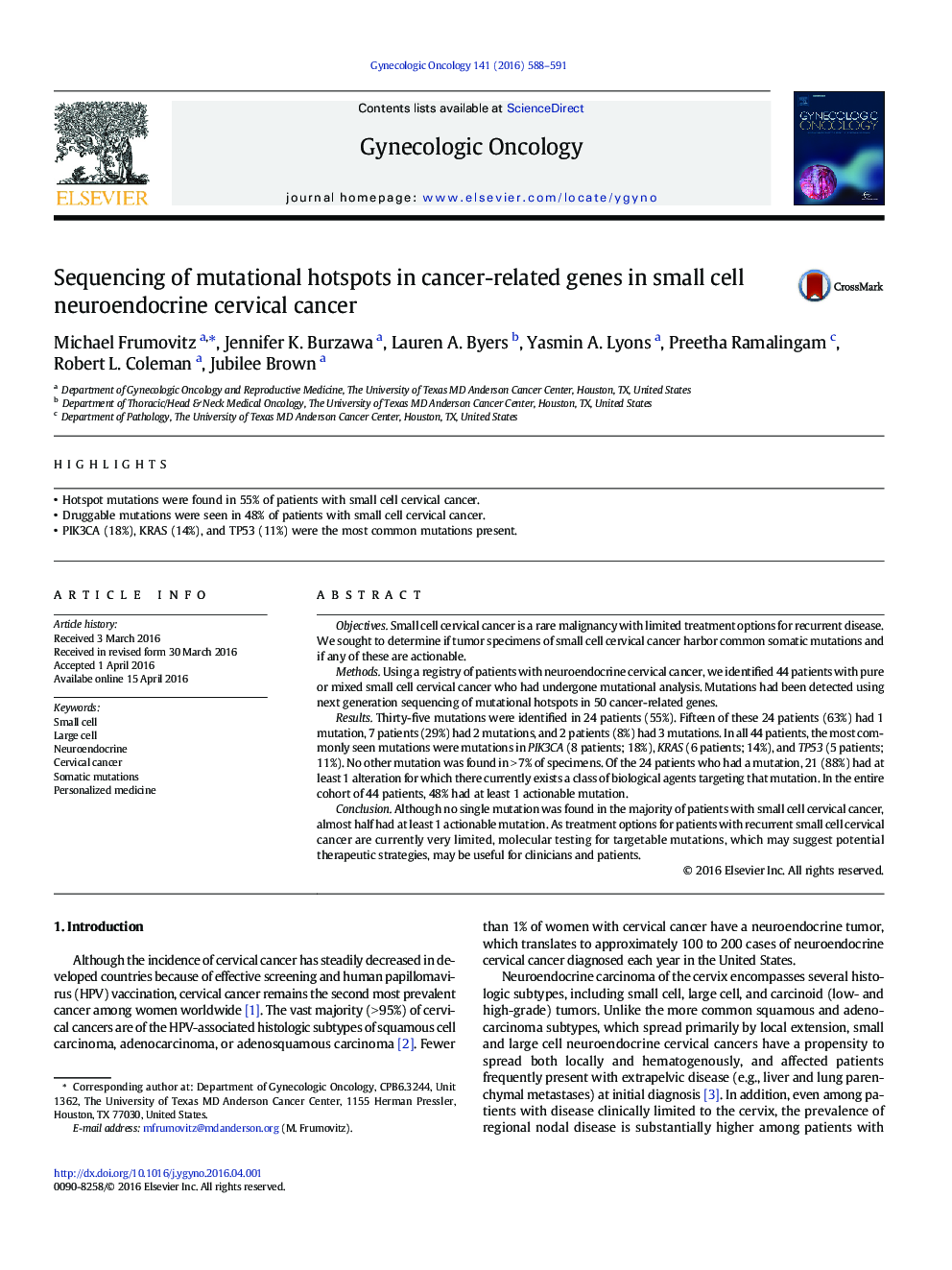| کد مقاله | کد نشریه | سال انتشار | مقاله انگلیسی | نسخه تمام متن |
|---|---|---|---|---|
| 3942952 | 1254060 | 2016 | 4 صفحه PDF | دانلود رایگان |
• Hotspot mutations were found in 55% of patients with small cell cervical cancer.
• Druggable mutations were seen in 48% of patients with small cell cervical cancer.
• PIK3CA (18%), KRAS (14%), and TP53 (11%) were the most common mutations present.
ObjectivesSmall cell cervical cancer is a rare malignancy with limited treatment options for recurrent disease. We sought to determine if tumor specimens of small cell cervical cancer harbor common somatic mutations and if any of these are actionable.MethodsUsing a registry of patients with neuroendocrine cervical cancer, we identified 44 patients with pure or mixed small cell cervical cancer who had undergone mutational analysis. Mutations had been detected using next generation sequencing of mutational hotspots in 50 cancer-related genes.ResultsThirty-five mutations were identified in 24 patients (55%). Fifteen of these 24 patients (63%) had 1 mutation, 7 patients (29%) had 2 mutations, and 2 patients (8%) had 3 mutations. In all 44 patients, the most commonly seen mutations were mutations in PIK3CA (8 patients; 18%), KRAS (6 patients; 14%), and TP53 (5 patients; 11%). No other mutation was found in > 7% of specimens. Of the 24 patients who had a mutation, 21 (88%) had at least 1 alteration for which there currently exists a class of biological agents targeting that mutation. In the entire cohort of 44 patients, 48% had at least 1 actionable mutation.ConclusionAlthough no single mutation was found in the majority of patients with small cell cervical cancer, almost half had at least 1 actionable mutation. As treatment options for patients with recurrent small cell cervical cancer are currently very limited, molecular testing for targetable mutations, which may suggest potential therapeutic strategies, may be useful for clinicians and patients.
Journal: Gynecologic Oncology - Volume 141, Issue 3, June 2016, Pages 588–591
